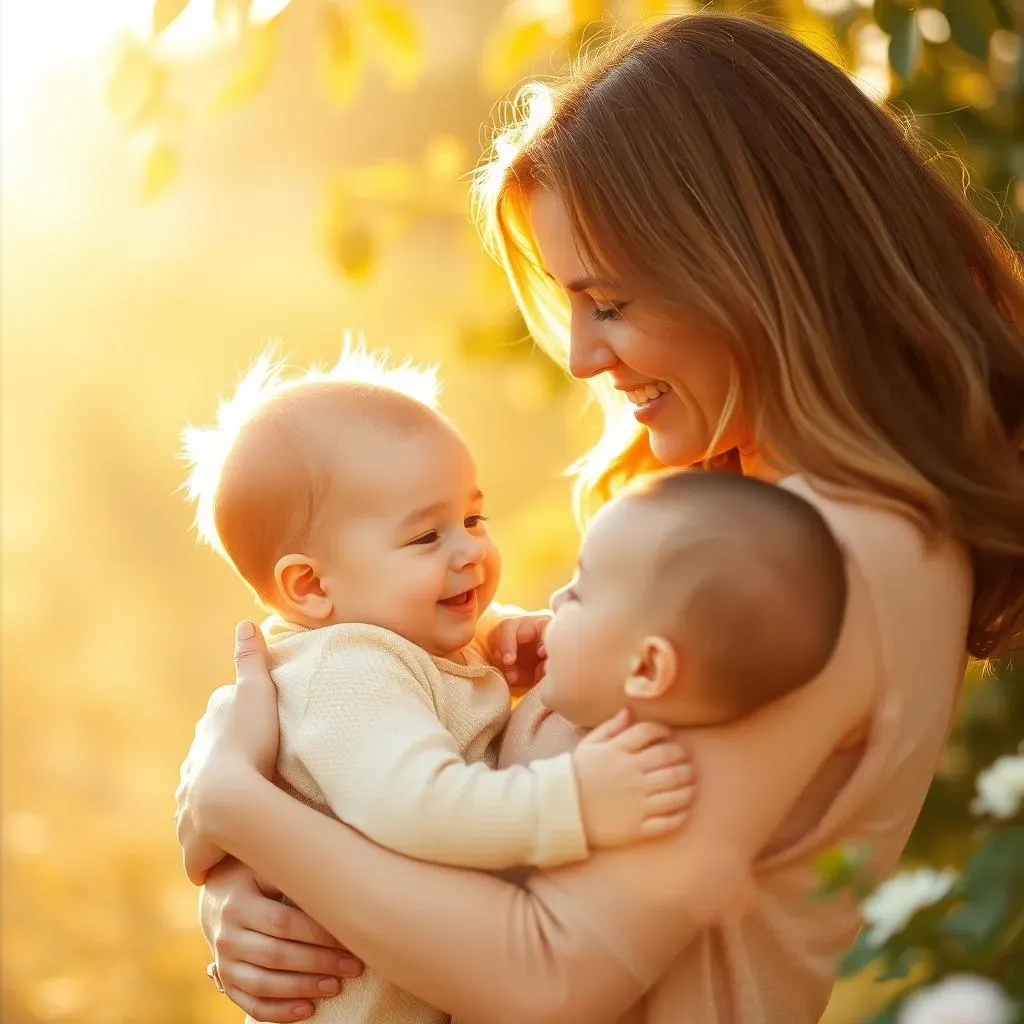Table of Contents
Ever wonder how celebrities navigate the crazy world of parenthood? We all have our own parenting styles, and famous folks are no different! This article dives into the fascinating world of celebrity parenting styles, exploring the diverse approaches taken by some of the most recognizable names in entertainment. We'll look at everything from the close-knit bonds of attachment parenting to the more hands-off approach of free-range parenting. Think of it as a celebrity parenting style guide, not a judgment, but rather a look at the different ways people raise their children. Get ready to uncover the secrets, strategies, and sometimes surprising choices behind how these famous parents raise their little ones. From the ultra-involved to the relaxed and trusting, we'll explore the spectrum of celebrity parenting styles and the philosophies that drive them. We'll even touch upon the controversies and criticisms that often surround these high-profile families, offering a balanced perspective on the complexities of raising children in the public eye. So buckle up, because this journey through the world of celebrity parenting styles is about to begin! Prepare to be entertained, informed, and maybe even inspired as we dissect the unique approaches these parents have taken. Remember, there's no one "right" way to parent—this is simply a peek into the varied approaches of some well-known families. Let's explore!
Attachment Parenting: A CloseKnit Approach

Attachment Parenting: A CloseKnit Approach
The Core Principles of Attachment Parenting
Attachment parenting, at its heart, is all about building a strong, loving bond between parent and child. It emphasizes responsiveness to a baby's needs, prioritizing physical closeness like babywearing and breastfeeding. Think of it like this: imagine a tiny sapling—it needs consistent nurturing and support to grow into a strong tree. Similarly, a baby needs consistent care and attention to develop a secure attachment.
Many celebrities have embraced this approach. For instance, celebrity parenting styles often showcase this approach, highlighting the importance of physical closeness and responsiveness to a child's cues. This isn't just about cuddling; it's about creating a secure base for the child to explore the world from. Think of it as a safe haven, a warm embrace that reassures the child that they are loved and protected. This feeling of security is crucial for healthy emotional development.
Benefit | Description |
|---|---|
Increased Security | Children feel safe and loved |
Stronger Bond | Deep connection between parent and child |
Emotional Regulation | Children develop better coping mechanisms |
Practical Applications of Attachment Parenting
Attachment parenting isn't just about theory; it involves practical steps. It means being responsive to your baby's cries, offering comfort when needed, and providing plenty of skin-to-skin contact. This might mean co-sleeping, breastfeeding on demand, and carrying your baby in a sling or carrier. It also means being mindful of your baby's cues, understanding their signals of hunger, tiredness, or discomfort. This isn't about spoiling your child; it's about providing the necessary support for their development.
It's important to remember that attachment parenting is a journey, not a destination. It requires patience, understanding, and a willingness to adapt to your child's unique needs. There will be challenges, of course, and it's perfectly okay to seek support from other parents, healthcare professionals, or family members. Remember, you are not alone in this journey. Many resources are available to help you navigate the complexities of attachment parenting. Many resources are available to guide you. Check out our piece on celebrity family support systems for inspiration.
- Respond to your baby's cues
- Provide plenty of skin-to-skin contact
- Offer comfort and reassurance
- Practice babywearing
Addressing Common Concerns and Misconceptions
Some people worry that attachment parenting might spoil a child, making them clingy or dependent. However, research shows that secure attachment actually leads to greater independence and self-reliance in the long run. Children who feel safe and loved are more likely to explore their surroundings and develop their own sense of self. It's a bit like a plant with strong roots—it can weather storms and grow tall and strong.
Another misconception is that attachment parenting is incredibly time-consuming and demanding. While it does require dedication and attention, it's not necessarily more time-consuming than other parenting styles. It’s more about being present and engaged with your child, rather than simply fulfilling their basic needs. The benefits of a secure attachment far outweigh any perceived inconvenience. Remember, building a strong bond with your child is an investment in their future well-being. For more on the challenges and rewards, explore our articles on celebrity family values and celebrity family legacies.
Gentle and FreeRange: Finding the Balance

Gentle and FreeRange: Finding the Balance
Gentle parenting emphasizes empathy, understanding, and setting clear but kind boundaries. Think of it as guiding a child, not controlling them. It's about responding to their emotions with compassion and helping them learn to self-regulate. Free-range parenting, on the other hand, focuses on giving children more independence and freedom to explore and learn from their experiences. It's about letting them navigate challenges and develop resilience. These two approaches aren't mutually exclusive; many parents blend elements of both, creating a unique parenting style that's tailored to their child's personality and their family's values. Finding that sweet spot—the balance between nurturing and allowing independence—is key.
Some celebrities have famously embraced this balanced approach. For example, celebrity parenting styles often reflect a conscious effort to create a supportive but not overbearing environment. These parents often encourage their children’s interests and talents while making sure they learn responsibility and respect for others. The goal isn't to shelter children from every challenge, but to equip them with the skills and confidence to face the world. It's about fostering a sense of self-reliance while providing a loving and supportive environment.
- Emphasize empathy and understanding
- Set clear, kind boundaries
- Encourage independence and exploration
- Allow children to learn from mistakes
One common concern is that free-range parenting could lead to unsafe situations. However, this isn't necessarily the case. It's about age-appropriate freedom and responsible risk-taking, not reckless abandonment. Parents using this style often teach children vital safety skills and gradually increase their independence as they mature. It's about building trust and empowering the child to make responsible choices. Think of it like learning to ride a bike—you need training wheels at first, but eventually, you learn to balance on your own. For more on navigating the complexities of raising children, check out our article on celebrity childhood stories.
Another potential worry is that gentle parenting might be perceived as overly permissive. However, gentle parenting isn't about avoiding discipline; it's about using discipline that's both effective and respectful. This might involve natural consequences, logical consequences, or restorative justice approaches. It’s about guiding children toward responsible behavior through empathy and clear communication, not through punishment or control. It’s a more collaborative approach to raising children, fostering mutual respect and a strong parent-child bond. To explore more about different family dynamics, you can read this article on celebrity blended families.
Gentle Parenting | Free-Range Parenting |
|---|---|
Emphasizes empathy and understanding | Encourages independence and exploration |
Sets clear, kind boundaries | Allows children to learn from mistakes |
Focuses on positive reinforcement | Promotes resilience and self-reliance |
Strict vs. Permissive: The Spectrum of Control

Strict vs. Permissive: The Spectrum of Control
The Disciplined Approach: Strict Parenting
Strict parenting emphasizes rules, consequences, and clear boundaries. Think of it like a well-structured building—it needs a strong foundation and clear guidelines to stand tall. Children raised with this style often understand expectations and learn self-discipline. It's not about being harsh or unloving; it's about providing structure and consistency. This approach can instill a sense of responsibility and respect for authority, leading to well-behaved children who understand the importance of following rules. However, it’s vital to balance structure with warmth and understanding, avoiding overly authoritarian methods that can damage the parent-child relationship.
Several celebrities have adopted stricter approaches, often prioritizing discipline and clear expectations. Looking at celebrity parenting styles, you'll find examples of parents who emphasize rules and consequences. While the specific methods vary, the common thread is a focus on establishing clear boundaries and ensuring children understand the repercussions of their actions. This isn't about harshness, but about providing a framework within which children can learn and grow. It's about teaching self-control and respect for rules, preparing them for the responsibilities of adulthood. For a deeper dive into the complexities of family relationships, check out our piece on celebrity family feuds.
- Clear rules and expectations
- Consistent discipline
- Emphasis on obedience
- Structure and routine
The Relaxed Approach: Permissive Parenting
On the other end of the spectrum is permissive parenting, which prioritizes a child's happiness and freedom of expression. Think of it as a garden where plants are allowed to grow naturally, without too much pruning or restriction. While this can foster creativity and independence, it can also lead to a lack of structure and boundaries. Children may struggle with self-discipline and may not learn to respect the needs of others. Finding the balance between freedom and responsibility is crucial for healthy development, and permissive parenting sometimes struggles with this balance.
While less common among celebrities who are often under intense public scrutiny, some parents opt for a more relaxed approach, emphasizing their children's autonomy and self-expression. However, even within the seemingly laid-back approach, celebrity parenting styles often reveal underlying strategies for guidance and support. These parents still offer love and support, but their methods of discipline and guidance might differ significantly from stricter approaches. The key here is to understand that permissive parenting, while prioritizing freedom, doesn't necessarily equate to a lack of parental involvement. For a look into how celebrities manage the demands of fame and family life, you might find our article on celebrity family vacations interesting.
Strict Parenting | Permissive Parenting |
|---|---|
High expectations and clear rules | Emphasis on child's happiness and freedom |
Consistent discipline and consequences | Fewer rules and less structured environment |
Focus on obedience and respect for authority | Encourages self-expression and independence |